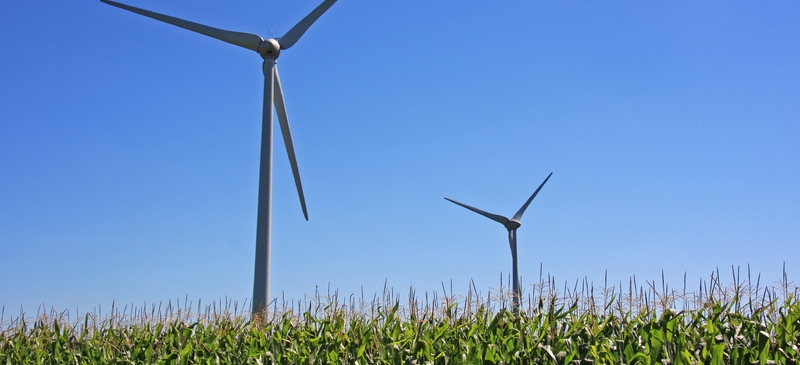
Why the UK needs to back Commission energy plans
Why the UK needs to back Commission energy plans
by Katinka Barysch
The reactions to the Commission’s energy package – widely leaked before its official publication date on January 10th – were predictable. Environmental campaigners deplored a lack of ambition while the big eurozone countries recoiled at the Commission’s call to break-up national energy champions.
The package offers little that is fundamentally new: the EU has had targets for energy market liberalisation, renewable energy use, CO2 emissions and so on for years. The Commission wants the member-states to become more ambitious in some areas (for example in saving energy), but in others it is just reinforcing objectives that EU countries have signed up to a long time ago. Energy market liberalisation is a case in point.
It is ten years since the EU decided to create a single European market for energy. EU countries were supposed to liberalise wholesale markets by 2004 and those for consumers by mid-2007. Yet the reality is very different.
In the gas sector, the incumbents still controls more than 80 per cent of the national gas market in Germany and France, as well as Denmark, Italy, Hungary and Poland. In the UK, the country that has gone furthest with gas sector liberalisation, the share is just one-quarter.
Power markets look similarly closed. Electricite de France has three-quarters of the French electricity market; Spain has just two dominant operators; and Germany’s lucrative power market has been carved up between five big companies. In the UK, nine companies compete on relatively even terms.
Cross-border competition remains severely limited. In the gas sector, the big European companies tend to sign long-term bilateral deals with gas producers, most notably Russia’s Gazprom. In the electricity sector there are still very few interconnectors between national grids, and those that do exist are chronically congested. Partly as a result of this, wholesale gas and power prices vary widely between the different EU countries.
Neelie Kroes, the EU’s competition commissioner, has spent the last two years trying to find out why competition has remained so limited. She has launched dawn raids on various European power companies suspected of collusion, and she promises closer scrutiny of future energy mergers. But, as the energy paper rightly points out, competition policy alone cannot create a well-functioning European energy market. National governments and European energy companies need to play ball.
The Commission says that the fact that Europe’s big energy companies still control both production and distribution of energy is a serious impediment to competition. It therefore wants gas and electricity companies to sell their networks and pipelines. Knowing that this is controversial, it suggests an alternative option: a legal and de facto separation that actually works (unlike the current weak legal controls). Since regulation is key to making this second option work (and since a number of national regulators are rather too cosy with their clients), the Commission wants to shift regulatory powers to Brussels.
The comments from Paris and Berlin ranged from “unnecessary complications” to “expropriation”. So what are the chances that EU leaders will adopt the Commission’s package, or parts of it, at their March summit?
Germany, as the EU president in the first half of 2007, is chiefly responsible for brokering a deal. But Germany – with its big and powerful energy companies – is hardly suited to play the role of an ‘honest broker’. Worse still, Germany itself is divided about what to do. The environment ministry wants tough targets for emissions of greenhouse gases. Chancellor Angela Merkel backs this stance, not least because an intra-EU agreement would allow her to shine when the issue comes up at the G8 summit in June. The economics minister, Michael Glos, fears that higher environmental standards could erode German industrial competitiveness. But he will compromise – provided that German power producers can retain their cosy national oligopoly.
In an FT interview on January 12th, Glos said he would not completely rule out the Commission’s suggestions of ‘ownership unbundling’ and centralised regulatory powers – but only after all other options have been exhausted. So he is effectively defending the current system of (weak) legal unbundling and co-operation between national regulators. Germany is also having fierce internal debates about most other aspects of the EU energy agenda, ranging from the ‘right’ stance towards Russia to energy saving targets for cars and buildings. Chances are that Merkel will arrive at the EU spring summit perched precariously on a fragile national compromise.
But even if her hands were not tied, she would struggle to persuade pre-election France that energy market opening is a good idea. The merger between Gaz de France and Suez is still one of Paris’ pet projects. Unlike other big European gas companies, Gaz de France owns few production assets. Stripping out the French gas pipe network would make Gaz de France unattractive to Suez. EdF is one of Europe’s more efficient power producers, and with its strong home base it would do well in a more liberalised European market. However, EdF also provides pensions and welfare to several hundred thousand workers. It is highly unlikely that either of the big parties would risk a blow to national prestige and / or a showdown with the trade unions just ahead of presidential and parliamentary elections.
This leaves the UK as the only big country that could push hard for the Commission’s package – provided the British government can overcome its traditional dislike for the Commission. The UK is in a strong position since it has already done its homework on opening local power and gas markets, and since most Brits want tougher action climate change. Yet, London will face an uphill struggle to persuade the Germans and the French that open and flexible markets, rather than national champions, are the best guarantee for secure energy supplies.
Katinka Barysch is chief economist at the Centre for European Reform.
